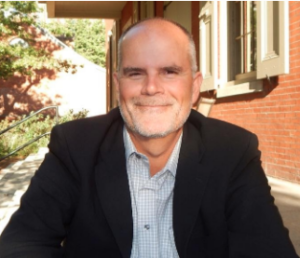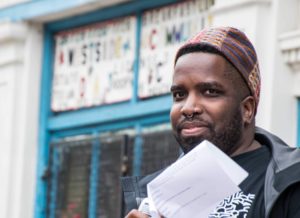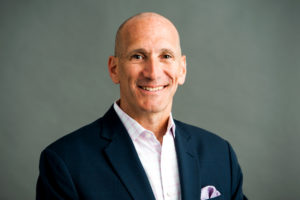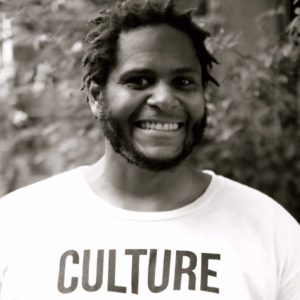Uprising in Philadelphia: A to-do list for the next six months
 July 9, 2020
Category: Featured, Long, Purpose
July 9, 2020
Category: Featured, Long, Purpose
Updates
Update: In Abdul-Aliy A. Muhammad's entry, the spelling of womxn was reverted to women throughout, at Muhammad's request. (07/27/20 at 9:15 a.m.)The first six months of 2020 have been momentous — serving up a devastating pandemic, a precipitous economic downturn, and a long overdue reckoning with the racial and economic injustices so deeply a part of our nation’s bedrock they give lie to the idea of the American Dream.
“O, yes, I say it plain, America was never America to me,” the poet Langston Hughes wrote in 1935, and we’re finally beginning to heed the truth of his words some 85 years later.
The expansive (and sustained) uprising that has taken place in cities (and towns) across the nation since late May has been a belated wake-up call about the anti-Black racism that not only shapes nearly every one of our institutions, but also underpins our national character and legacy.
In Philadelphia, home to more than 9.000 nonprofits — 1,886 of them foundations with collective assets of $15.1 Billion — the uprising has prompted a further reckoning. Long focused on doing good in the nation’s poorest big city, Philadelphia nonprofits are now examining how their practices and processes have made them complicit — by action or inaction — in the inequities at the heart of the uprising.
Strong voices have emerged from the nonprofit sector during this crucible of change.
“What philanthropy needs is not a new framework, but a new endgame, racial liberation,” Sidney Hargro, the president of Philanthropy Network Greater Philadelphia, wrote in a column that is really a figurative call to arms for philanthropy. “The pursuit of racial liberation requires an intentional and laser-like focus on breaking systems of oppression that are based in white supremacist culture.”
Hargro is not alone in articulating strategies for how to address structural inequities from within the sector.
We asked a wide swath of Philly’s nonprofit professionals to give us a “to-do” list for the next six months, in view of the uprising and all it has brought to light in our city. Eighteen people responded to our request — and their responses illuminate both personal and institutional commitments.
Here are solutions snd promises that echo the final lines in the stanza from the Langston Hughes poem quoted at the beginning of this post: “And yet I swear this oath — America will be!”
Be prepared for the long haul. Like the work to directly challenge inequity and build a more just world, this post is long and full of solutions to consider, think about, internalize and activate.
Here, then, is our collective to-do list, Philadelphia.
❧
1. Facilitate discussions between the private, public, and philanthropic sector
 Dominique C. Goss
Dominique C. Goss
VP – Senior Manager of Strategy & Social Impact
Office of Charitable and Community Giving
TD Charitable Foundation
- Facilitate discussions between the private, public, and philanthropic sector
- Create a uniformed plan
- Don’t be swayed by the “shiny new issue”
- Wake up every morning, and remind yourself that this is a marathon and not a sprint. It has taken centuries for this unjust system to be built, it will not unravel quickly…
- Continue to hold our elected officials and corporations accountable to creating meaningful systemic change…
- Use your social media talent and influence for good and not evil
- Practice self-care in whatever form that looks like (mediation, walking, running, laughing, dancing, etc.)
- Create a village of like-minded people you can confide in
- Continue to demand justice and equity daily (small wins matter)
- If you’re in a position to move resources #DOIT! Resources matter and if you’re in a position of privilege and power moving those resources to community and community organizers is critical
- #VOTE! Additionally, volunteer with organizations who are educating communities on the importance of civic engagement
- Join a Giving Circle
- #SayTheirNames — These injustices didn’t start with Breonna Taylor, Ahmaud Arbery, and George Floyd. We need to continue to honor all the lives that have been taken
- Remain grounded in “Our Why”
Also, it’s important that philanthropy continues to push this agenda using a concerted effort with a collective voice. Now isn’t the time to treat this as a passing moment, this is a movement. As a Connecting Leadership Fellow with the Association for Black Foundation Executives joint CEO statement put it best: “We Must be in It for the Long Haul.”
❧
2. Build relationships with marginalized communities
Cheryl Thompson-Morton
Program Manager
The Lenfest Institute for Journalism
I remember as we were preparing to cross the threshold into 2020 many people were talking about that this year would be a year for vision. They were right, but instead of Pinterest boards full of all of the things we wanted to accomplish, we ended up with a clearer vision for what our current system really is. We saw how deep inequities, and specifically anti-Black racism, are baked into the fabric of our lives.
Below are some things I think we need to do to enact meaningful change over the next six months in the City of Brotherly Love.
- Listen: We have to listen to community members with lived experience — not to merely extract their expertise but to co-create a future with them that is more equitable. We need to realize that lived experience is a valuable educator and asset to our community and that oftentimes those with lived experience often have the best solutions needed to improve outcomes — because they have already been creating them for themselves.
- Relationship: In this time more people are reading of the canon of literature regarding racial disparities. I highly recommend this but have a caution — it’s not about what you learn but what you live that leads to transformation. And going back to the first point of lived experience, building relationships with BIPOC folks will provide context that leaps off of the page and provides nuance to an issue that you otherwise won’t have access to. To truly be an ally — you need to build relationships with marginalized communities. The goal of this isn’t to make yourself feel better, but to recognize the humanity, joy and assets that each of us provide to this experience. That may mean you have to go to a community and be the only one in the room to create opportunity to meet people and to empathize with an experience BIPOCs experience every day.
- Repent: Repenting includes recognizing where we are, acknowledging that we are in a place that we don’t want to be and intentionally moving in a different direction. It’s important to remember that although none of us created this system — we all now have a choice in whether let it continue through our complacency or if we intentionally work to dismantle the thinking, practices and systems that oppress BIPOC communities within our spheres of influence. You’re not called to change the world — but you are called to change the piece of the world you exert influence on. Acknowledging the wrong may be uncomfortable, especially in a public setting, but is necessary to begin rebuilding trust.
- Move swiftly, but sustainably: I know we needed this process to be done yesterday. You should move quickly to begin to do this work. But don’t move in a way that isn’t sustainable. If you’re serious about equity — you’ll be working on it for a lifetime. Don’t move so fast that you get burnt out.
- Interrogate everything: Systems are designed to meet goals. When we discuss systemic racism, we have to realize that the goal of the system is to uphold whiteness and it does that by oppressing BIPOC communities. The evidence of systemic racism is oftentimes obvious, but the causes can be more difficult to pinpoint at times. In order to make change we need to interrogate our thoughts and feelings, our processes and our structures — even those that don’t seem to have anything to do with race. The goal of this is to design systems that have a new goal of advancing equity for all.
❧
3. Invest unrestricted capital in initiatives for low-income individuals and families
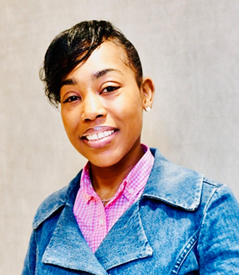 Nikia Owens
Nikia Owens
Managing Director, Financial Empowerment
United Way of Greater Philadelphia and Southern New Jersey
As a nation, we have underestimated the ability of low-income individuals and families to improve their financial and general well-being. As a result, $400+ billion in yearly expenditures from government and philanthropy are invested in needs-based programs and policies directed towards low-income individuals and families that penalize initiative rather than reward it.
Philadelphia must prioritize the following in addressing those impacted by poverty:
- Directly invest unrestricted capital in initiatives for low-income individuals and families to fuel their self-directed efforts that empower and lead to upward mobility;
- Reexamine the misplaced focus on individual achievement that overlooks the power of communities to lift themselves out of poverty by providing access to opportunity;
- Become better informed on the innovative ways individuals and families achieve economic and social mobility; and
- Build on systemic changes and policies that support thriving communities for every man, woman, youth and child to achieve success where they work, live, learn and play.
Notwithstanding, if Philadelphia desires to improve the economic conditions and change the current poverty narrative it must intentionally invest, build and support policies and systemic structures that prioritize racial equity and social justice.
❧
4. Release more than the required 5% in grant payout for each of the next three years
Jennifer A. Leith
Executive Director
The Douty Foundation
Those in philanthropy, I offer the following to-do list for all of us and the funding entity we work with:
- Draw up a strategic plan (like the kind expected of non-profit applicants, ahem) with time-bound actions that will result in increasing your focus on racial and economic equity. Include the following components:
- Describe your new commitment to advocacy and to community organizing along with the funding allocations that demonstrate that commitment.
- Release more than the required 5% in grant payout for each of the next three years. Following the lead of the Ford Foundation and using the sale of social bonds is acceptable to achieve this, but not necessary.
- Commit to increasing the diversity of your board of directors across race, class and gender which will provide varied life experience perspectives to discussions, decisions and policies. You might want to consider making this your first step.
- Use a portion of your endowment assets — at a minimum 10% — to invest in a local Community Development Finance Institution (i.e. impact investing) that is focused on low-to-moderate income business owners, entrepreneurs of color and women-owned businesses. This list is a good place to start:
- Financially participate in a local pooled fund that will not only support important collective impact work but also likely open your perspective and understanding of an issue. Choose one or more of the following:
❧
5. Make space for, participate in, and learn from conversations about race
Joe Pyle
President
Thomas Scattergood Behavioral Health Foundation
The Scattergood Foundation believes major disruption is needed to build a stronger, more effective, compassionate, and inclusive society where behavioral health is central. We approach our work with humility and strive to share power responsibly while being unrelenting advocates for practices that advance equity for all. We will THINK, DO, and SUPPORT to advance racial and social justice.
In the next six months, we will:
- Make space for, participate in, and learn from conversations about race that challenge us with discomfort, internally and externally
- Use the privilege that working in philanthropy affords us to amplify the voices of our grantees and partners advocating for racial and social justice
- Learn about and publicly discuss the impacts of racism on mental health
THINK
- Develop communications pieces and strategies that are explicit about racial and social justice
- Add racial diversity to the author pool of our Think Bigger Do Good Policy Series
- Center racial equity in our advocacy for trauma-informed, healing-centered practice
DO
- Define our commitment to combating practices that sustain racism in evaluation
- Educate participants in The RISE Partnership and partnering organizations about anti-racist practices in data collection and how data is analyzed
- Work with the Same Day Work program to develop an advocacy agenda for addressing structural conditions that allow homelessness to exist
SUPPORT
- Make more grants that address racial and social justice like the grant we made to the Philadelphia Bail Fund
- Invest time and resources in participatory grantmaking like the Community Fund for Immigrant Wellness
- Include all staff and board members in a democractic process to shape our future grantmaking
- Build a new grantmaking process with the goal of: Supporting more organizations that are led by people of color; integrating principles of Trust-Based Philanthropy
We will continue to plan for how the Scattergood Foundation works toward racial and social justice in the next six months, six years, six decades, and more — however long it takes. We invite partners to join us and to challenge us.
❧
6. Incorporate racial equity into all aspects of work
Sulaiman W. Rahman
CEO
DiverseForce
McKinsey & Company released a report in 2019, The Economic Impact of Closing the Racial Wealth Gap. It outlines how the persistent wealth gap in the United States is a burden on Black Americans, as well as the overall economy. Their research shows that white families have 10 times the wealth of Black families. While the wealth of white families has increased by over 50% between 1992 and 2016, Black family wealth has not changed during that same time period. This research shows that while Black families are still fighting for equality, our white counterparts are continuing to build wealth and equity. This wealth gap is continuing to burden Black America and will cost our country between $1 trillion to 1.5 trillion in gross domestic product between now and 2028.
Like most studies, McKinsey & Company offers up a framework in which to consider addressing these challenges, but here’s my suggested to-do list for public, private, and philanthropic organizations over the next six months:
- Immediately stop the “high fives” in the boardrooms and staff meetings for well-written #blacklivesmatter statements. Although it’s a good start to acknowledge that Black lives do in fact matter, words alone will not move the needle. It’s time for organizations and institutions to do the challenging work to dismantle institutional racism. No one will hear your words if your incongruent actions are speaking so loudly.
- Take some time to learn how Black America has continued to be economically oppressed, long after chattel slavery. Author Shawn Rochester wrote a book titled, The Black Tax. You can watch a talk he had with Google’s employees.
- Boards, leadership, and staff should reevaluate their mission, vision, and values, and find ways to incorporate racial equity into all aspects of their work. That includes COVID-19 responses and reintegration into the workplace.
- Set clear and measurable objectives, goals, and KPIs (Key Performance Indicators) as it relates to employee hiring, supplier diversity, investments, community impact, and political advocacy. Not exclusively, but specifically for Black communities. Discuss these objectives, goals, and KPIs with all stakeholders from the boardroom to the mailroom and set a cadence of reporting and accountability.
- Attach the budget please. Don’t assume that your Black and brown board members or staff members are DEI experts, or ask them to volunteer their time to develop a plan to institutionalize diversity, equity, and inclusion within your organization. If they are open to take on the task, compensate them accordingly, or hire a consultant to take on the heavy lifting. Also, be mindful that you are not practicing Trickle Down Community Engagement by asking Black-led organizations to do for free what your organization or staff members are funded/paid to do.
- Play a part in fixing the “Cradle to C-Suite” pipeline for Black America. The current pipeline has cracks, leaks, gaping holes and detours that result in way too many passing through the criminal justice system; paralyzing their possibility for upward mobility.
I could keep going, but I want to honor Generocity’s word count. Let’s look back six months from now and reflect on how we participated in the beginning of a movement, and not just a moment.
❧
7. Begin to reorganize and reframe how we understand conditions like poverty
Michael O’Bryan
Director of Learning, The Village of Arts and Humanities
Innovation Fellow, Drexel’s Lindy Institute for Urban Innovation
The hardest thing for many of us to do during this time is sit in the tension of the moment. The tensions of racism, capitalism, inequity, homo/transphobia, and policy. The tension of recognizing our complicity in all that has led to this moment. The tension of the inescapable disorienting nature of the moment. The fear of the unknown.
We must understand that we have denied many Philadelphians the right to humanity. Many young people have been denied the right of childhood innocence and the right to make mistakes; they have been denied the right to emotional experiences of joy, awe, and wonder. Humans have come to use each other as tools for profit and growth at the hands of systems steeped in the same tensions of capitalism, racism, inequity, homo/transphobia, and political economy.
We must begin to reorganize and reframe how we understand conditions like poverty. “Poverty”, as we know it, is an abstract phrase and data point with qualifiers or, even worse, somehow an actual attribute of an individual or family. When we humanize the experience of poverty and place it into the framework of political economy, it then is an outcome of a method of decision-making and prioritization of capital, land, and other assets in the hands of the few over the opportunity to support the livelihood of the many. What has happened to people in this region is not “poverty” but economic violence. Poverty, therefore, is an outcome, the results of that economic violence. This violence is a choice of systems, and players in the systems, with the privilege of immunity. It is a choice to suppress wages. It is a choice to redline and deny homeownership to Black people and other people of color. It is a choice to practice predatory lending. It is a choice to practice unfair hiring. It is a choice to not fund public schools. It is a choice to fund the police in droves to overpatrol communities who in-turn see fractional investments in their neighborhoods.
To be equitable, organizational and institutional (including governmental) budgets, policies, and procedures must map to a clearly articulated and stated set of values reflective of the anti-racist, nonpatriarchal, human centered developmental needs of every Philadelphian. If we cannot map our values to the budgets and procedures, then we as a region are failing each other and the children who will inherit this city from us; we are simply offering “thoughts and prayers” while our city figuratively, and literally, goes up in flames.
❧
8. Support infrastructures of care and concern that center Black women
Abdul-Aliy A. Muhammad
Co-founder
Black and Brown Workers Cooperative
As the nation is confronted by the explicit demand that Black Lives Matter, we must not recoil because of the systematic tactics and violence to prevent continued dissent. Philadelphia faces the task of addressing the demands of its populace.
I stand in solidarity with encampment Lakay Nou, which is located on Benjamin Franklin Parkway. The collective demands “support autonomous self-led communities” and state that the City “must make permanent low-income housing.” This encampment is currently being threatened with disassembly. I also strongly support the demands of the Philly Black Radical Collective, including the abolishment of the Fraternal Order of Police union.
In addition to supporting and amplifying these demands, I personally agree with the call for Mayor Jim Kenney to resign, following his consent of use of chemical weapons against protesters in Philadelphia. Kenney has a long and sordid history of back-peddling on demands and concerns of Black Philadelphians and in doing so, he is not only complicit in state-sanctioned violence that impacts Black and Brown communities, but an agent of it. We are unable to move past these grievances with the Mayor of our city, we have lost confidence. Kenney, we demand your resignation!
Alongside addressing these collective demands, Philadelphia must support infrastructures of care and concern that center Black women. With the recent brutal murder of Dominique “Rem’mie” Fells, we are reminded that Black Trans Lives Matter is not a tertiary request housed under the umbrella of Black Lives Matter, but must be central to the demand, because if we aren’t protecting the most marginalized, we aren’t fighting for Black Lives.
Lastly, I support a #PoliceFreePenn, demands crafted by an abolitionist assembly, who “aim to abolish policing and transform community safety” at Penn. This formation is also echoing a demand of mine and others to repatriate remains of enslaved persons, housed at the university. The Morton Collection is on par with racist monuments, like the Rizzo statue and must be disposed of, if we are truly done with uplifting white supremacist legacies.
❧
9. Update policies to be intentionally anti-racist
Tivoni Devor
Director of growth and engagement
Urban Affairs Coalition
The effects of intergenerational structural racism in the region cannot be ended by simply stopping it from continuing, there is actual reparative work that must be done, and it needs to be as intentional and targeted as the policies that created it in the first place.
If I can speak for any group of people it would be my fellow white nonprofit leaders and board members, so here is my to do list for us and our organizations:
- Check your spending — are you tracking your organization’s spending in terms of minority-owned businesses? Your nonprofit should care about programmatic impact, but also its economic impact on where it spends every dollar every chance it can.
- Fix your board — Most boards have a race problem, it’s well known and yet basically unchanged, I wrote about it in 2015 and you still probably need to work on this, it is 2020 in Philadelphia, it shouldn’t be hard. If it is hard, ask yourself why is it hard?
- Update your policies to be intentionally anti-racist; create stronger diversity, inclusion and equity policies, create stronger whistle blower policies and protections so your staff are empowered to speak up.
This little listicle on its own won’t change much, but if you need a starting place here are some resources:
- Download and use Beech Community Services’ 2020 Philadelphia Black Business Directory
- Complete DiverseForce’s Board Needs Assessment to help actively find more diverse board members
- Pay for a workshop from the Black and Brown Workers Collaborative
Please also remember that this is not a six-month project, these are some of the first and easiest steps in a very long and continuous pathway in the right direction and you and your organization must stay vigilant every step of the way to avoid backsliding into complacency of your daily work.
❧
10. Ensure the security and funding of vital social service programs
Steve Rosenberg
Chief Operating Officer
Jewish Federation of Greater Philadelphia
The Jewish Federation of Greater Philadelphia, together with its partner agencies, has been working to support our communities both during the COVID-19 Coronavirus pandemic and during the upheaval following the tragic death of George Floyd. As Philadelphia prepares to reopen and move forward, the Jewish Federation has the following on its “to-do list”:
- Secure safety nets: Since the pandemic started, thousands of families across our region lost access to critical social services. At our five Mitzvah Food program pantry locations, and at our partner agencies KleinLife and the Jewish Relief Agency, every week we saw new clients struggle with the physical and psychological toll that comes with being food insecure. Our first step must be to ensure the security and funding of vital social service programs.
- Support vulnerable and isolated populations: Our region’s older adults who live in assisted living facilities, as well as those who live alone in their homes, will continue to socially distance and remain isolated for some time. It is imperative for both their physical and mental health that they remain connected to the world around them. Programs run during the height of the pandemic, like food delivery services and our Phone a Friend program, should continue in the future to make sure these vulnerable groups remain supported and recognized.
- Take meaningful action to combat racism: The pursuit of an equal and just society is one of the most fundamental concepts of Judaism. Following the death of George Floyd, we have stood with the Black community in solidarity and pledged to do more to dismantle systems of oppression and racial injustice. We will continue to provide platforms for the people of color in our own communities, including the 10% of Jews who identify as persons of color in our region.
- Embrace change: Over the past few months, local Jewish organizations have been forced to completely revamp their work and programs to adapt to a virtual world. This has opened new doors and pathways of communication that, in some ways, allow us to do our work better than ever before. Rather than revert back to our old processes when the pandemic is over, we should continue to innovate and use technology to further our missions and connect with more audiences.
❧
11. Sustain the momentum of this moment
 Erinn T. Corbett-Wright
Erinn T. Corbett-Wright
VP – Charitable Foundation Program Manager
Office of Charitable and Community Giving
TD Charitable Foundation
For the next six months, we need to sustain the momentum of this moment. As corporations publish their declarations of what we have always known and larger society has ignored (Black lives have always mattered, by the way), it has to be more than the slogan of Summer 2020.
Here’s my shortlist of what we should to do to ensure that this is a permanent shift in our consideration of the Black community:
- BUY BLACK —This seems like too easy of a fix, right? However, economic investments in Black-owned and serving businesses is a cornerstone of elevating historically underrepresented communities. There have been many lists and Google docs telling you where you can eat and shop Black in Philadelphia. Some of my personal favorites include iMunch Café, Southside Zabihah and Halal Eatery, the Sable Collective, and Amalgam Comics and Coffeestore.
- AMPLIFY BLACK VOICES —The lived experience of being Black in America is a nuanced experience that varies person-to-person but too often is a perspective left out of decision and change-making at large institutions. Inclusive design means elevating voices of those most at-risk of harm, beneficiaries of a product or program, and incorporating their specific feedback into the final product. If you work at a nonprofit organization within city limits, chances are that means you need to elevate Black voices if you want your programs and organizations to be more culturally competent. If there are no Black people who are in leadership (or an otherwise influential position) at your organization but you serve the Black community, question why that is. Talent pipeline a problem? Sulaiman Rahman solves that nearly every six months with the DiverseForce on Boards program.
- VOTE BLACK — I’ve been quoted on this before but it bears repeating — vote like a Black woman. Our representation in elected office should certainly meet higher criteria than their race, however, Black legislators are doing really powerful things in Philadelphia (and statewide) — they deserve our support. My eyes are on legislators like State Representatives Jordan Harris and Morgan Cephas as they focus on criminal justice reform and maternal mortality, respectively. At the city level, newer legislators like City Councilmembers Katherine Gilmore-Richardson, Isaiah Thomas, and Kendra Brooks are shaking up City Council with vibrant energy and demands for improvements to our community. Remember that we are casting ballots for more than just the presidential seat, vote in your local elections and consider supporting your Black candidates.
Let’s be clear — to accomplish a cultural reset of this size, it will take time.
The opportunity created by the uprising requires a commitment to sustained action and these are some of the lowest hanging fruits. The responsibility that non-Black people have in light of all that has happened is to reach higher on the tree.
❧
12. Fund arts and culture
Evon Burton
Creative Director
The Anderson Street Project
Philadelphia’s art and culture are the heartbeat of this city. It’s what we’re known for. Patti Labelle lives here. Disco was born here. Murals were popularized here. Unfortunately, our culture never gets the respect it deserves. Case in point, Mayor Kenney’s recent decision to drastically reduce the city’s arts and culture budget, which was by and large already small in comparison to other cities.
As shocking as that decision seemed, it was no surprise. To be an avid arts supporter in Philadelphia is to know how under-resourced our creative community already is. Promotion is slim. Funding is even slimmer.
It is without question that these planned cuts will do irreparable damage to this community. Numerous organizations are dependent upon the funds from the Cultural Fund every year. Museums and educational programs could close. Can you imagine a Philadelphia without Ballet X and Philadanco? Scary thought, right?
We need this administration to care. Care as much as the millions of our tourists who come to consume our arts and culture every year.
We join the outrage of the Philadelphia’s creative community toward this recent decision. Not only do we want to restore its funding. We want this administration to fund arts and culture at a level that reflects the impact Philadelphia-based creatives have made in the world.
The creative community needs your help. If you are like me and can’t fathom seeing a Philadelphia without its arts, here are a few easy things you can do.
- Join the movement. I’m proud to the support the Philly Culture United movement. Their website details how these cuts will negatively the creative economy. Make sure to follow them on Instagram and sign the Petition on their website. You can also call your local councilperson to express your concerns.
- Stay abreast of the issues. Read the news. Go to the Council meetings. The virtual hearings make it so much easier to be engaged. Follow the footsteps of my dear friend local rapper Queen Jo. She has been attending these council hearings and using her social media platforms to share the new things she has learned.
- Support our artists. This should go without asking but support our artists. Due to COVID, many have been out of work due to lack of touring and performing. They need our financial support now more than ever. Purchase their work. Stream their music. Go to their live DJ sets. Tip them if you can. Philly Soul Live developed playlists featuring local musicians. Check it out and use it to discover new favorite artists.
- Listen to our artists. Our creatives are a wealth of knowledge. Listen to their stories. During quarantine, The Anderson Street Project (shameless plug) has been hosting live interviews on Instagram with local entertainers. The Neighborhood Chat series has taught us so much about their respective industries and some of the struggles of working in this town.
❧
13. Support community-based arts education programs and teaching artists
Beth Feldman Brandt
Executive director
Stockton Rush Bartol Foundation
It is so easy to feel overwhelmed right now. Not knowing where to start can make us feel paralyzed to start anything.
At the Bartol Foundation (with modest financial resources and a staff of one full-time and one part-time worker), it is important for us to stay in our lane. Our work is to support community-based arts education programs and the teaching artists who provide these programs. Over the past few months, we have gotten emergency dollars to teaching artists, streamlined our grant process to get dollars out the door more quickly, and provided a series of self-care workshops for teaching artists.
Here’s a small part of our to-do list for the next six months. Or maybe the next 6 weeks; it is hard to think too far ahead.
- Stay focused on community-based arts education organizations and individual teaching artists, the community we are most connected to.
- Find new resources to scale up our Trauma-Informed Practice for Teaching Artists and Arts Education Administrators Training to reach more people at this critical time.
- Plan our free, fall Teaching Artist Workshops to meet the most immediate needs for teaching artists to strengthen their practice as they go virtual, work with young people returning to school and out-of-school programs, and recover from their own stress and uncertainty.
- Use our social media platforms to amplify activist efforts for Black Lives Matter, preserving arts funding in Philadelphia, and other pressing issues that affect education, behavioral health, and creativity in our city.
- Wear a mask.
- Listen. Reflect. Act.
If you are a teaching artist in the Philadelphia area, please spend a few minutes to tell us what programs you need in the coming year by taking our annual survey here. (Reply by July 10 to enter a raffle to win a $50 gift card!)
❧
14. Support local artists and the role they play in social justice and healing communities
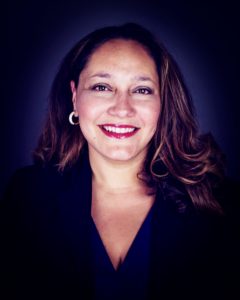 Yvette A. Núñez
Yvette A. Núñez
Vice President, Civic Affairs
The Chamber of Commerce for Greater Philadelphia
- Philadelphia is a city of neighborhoods. Choose to get to know a neighborhood you’re unfamiliar with. Take your kids to a playground there, drop off your dry-cleaning, dine outdoors at one of its restaurants, and/or do your groceries in one of its supermarkets. Talk to people while you’re there. In addition to supporting local businesses, you may discover how far its own residents have to travel for any of these basic amenities. Want to do more? Connect with a local food bank, interview a local CDFI to learn how you can volunteer your talents in support of a local business, or attend its community meetings. Personally, I’ve lived in North Philly, West Philly, Southwest Philly, Center City, East Oak Lane, and the Far Northeast. They are all ready and waiting.
- Get to know, respect, and/or love someone of a different race, political party, or economic status. It will give you pause before you default to blanket statements, assumptions, and critiques. Growing up in the housing projects of Newark, New Jersey, a roving police car made me feel unsafe, not the other way around. At 20, I reconnected with a half brother who was a cop and now a lieutenant in the Newark Police Department. It gives me pause, but I keep walking because all lives can’t matter until Black lives matter.
- Vote. Whether your guy wins in November or not, put in the work to be civil. Get together with someone (on Zoom or while practicing social distancing) “on the other side” and talk, laugh, bond over something you have in common. Don’t let people who have 4 to 8 years max in that seat erode the person you get to be for life.
- The City reduced arts funding by 40 percent. Support local artists and the role they play in social justice and healing communities. Of the institutions that remain, support those whose talk and walk are moving towards social justice and racial equity, or have always been there. As a former board member of Taller Puertorriqueño, Pennsylvania’s largest Latino arts organization, I believe in its conviction that embracing cultural heritage and community empowerment go hand in hand.
- The Chamber of Commerce, Mayor Kenney, Governor Wolf, and the leadership of Philadelphia’s surrounding counties have come together with more than 140 diverse leaders to launch the Philadelphia Recharge and Recovery Taskforce, a proactive, integrated public-private effort to accelerate Greater Philadelphia’s recovery and come together as a city and region to address systemic inequalities. This is no small feat, but they have committed to an accelerated road to progress that will require the business and civic community to work together. You have ideas, I know you do. Your ideas on how to improve our region’s economy are important for helping business, government, and nonprofit leaders respond quickly and start us on the path to sustainable, inclusive growth amid the COVID-19 pandemic and calls for social justice. Let the taskforce know what they are: https://www.surveymonkey.com/r/2THHB5Z
❧
15. Take a look at where your money sleeps at night
Cory Donovan
Executive director
ImpactPHL
As we contemplate a better future and how we contribute to it, I would encourage everyone to consider their personal finances as a powerful tool towards that change.
While you may not be Warren Buffet, you might have investments via employer-defined retirement plans — 401(k) or 403(b). Your contributions are likely invested in mutual funds, which own dozens of publicly-traded companies — some of which are doing much better than others when it comes to environmental, social, and governance issues (ESG).
We should all make an effort to better understand what we actually own and whether those investments align with our values and the world we want to create. Ask yourself, does it make sense to be invested in cigarette stocks if you donate money to find a cure for lung cancer? Or to be invested in for-profit prisons if you protest with Black Lives Matter?
Would you be disappointed to learn that your hard-earned dollars are invested in companies that:
- produce fossil fuels, weapons, or tobacco products
- contribute to mass incarceration, deforestation, or climate change
- have a history of gender or racial discrimination or human rights violations
The point isn’t to judge anyone for their current situation. But it is time to take a look at where your money sleeps at night.
Indeed, the biggest tool you have for creating positive change may be sitting idle or working against you. On July 23rd, ImpactPHL will be co-hosting a webinar to provide some insight on socially responsible investing (SRI). We would welcome you to the discussion.
❧
16. Exercise your rights
Greg DeShields
Chair, LGBTQ+ subcommittee
Philly Counts
- Take the Census. Every 10 years, the United States Constitution requires a count (or “census”) of all residents. The census collects details on the entire country’s population. A complete and accurate count is vital. This information is used to:
- Determine representation in Congress
- Distribute more than $675 billion in federal funding to states and communities
- Allocate resources for job creation, housing, infrastructure, and more
- In this way, the census significantly impacts Philadelphia and its communities.
- Volunteer. Now is a perfect occasion to get involved, donate your time or talents for charitable, educational, or other worthwhile activities, especially in your community.
- Write something. Take this time to express your thoughts, position, and recommended solutions regarding a cause important to you. Write an open letter, opinion editorial (op-ed), article, short story or blog. These are a great way to articulate your point of view in a way which can be widely viewed, evaluated, and possibly make a difference.
- Get a certification. Certification helps you get hired: Employers looking to hire want you to have knowledge, experience, and certifications in your areas of expertise. According to a recent certification program satisfaction study, 91% of hiring managers consider certification as a part of their hiring criteria.
- Register to vote. Voting is your civic duty. Today, most American citizens over the age of 18 are entitled to vote in federal and state elections, but voting was not always a default right for all Americans. Participating in elections is one of the key freedoms of American life. Many people in countries around the world do not have the same freedom, nor did many Americans in centuries past. No matter what you believe or whom you support, it is important to exercise your rights.
❧
17. Be a voice for positive change
Rev. Dr. Michelle Anne Simmons
CEO and founder
Why Not Prosper, Inc
I am a born and raised Philadelphian. Everyday, I strive to do good and be the voice for the voiceless. To accomplish this mission given to me by God, I wear many hats in the Philly community.
I am the founder and CEO of Why Not Prosper, a nonprofit empowering and supporting women from prison systems during their reintegration into society. I am the chairman for the steering committee of Philadelphia Lawyers for Social Equity, on the executive board of the MacArthur Foundation Safety and Justice Challenge Community Advisory Community, and a mother, grandmother and mentor to several formerly incarcerated women and organizations.
In light of the many moving pieces of uncertainty and calamity in our city and nation right now — a pandemic, the elections, police brutality, and racism — I need to continue being the best mentor and example to all the women I serve everyday. It is important to me to adhere to this daily to-do list to keep my vision clear and ensure that I stand up for those that don’t have any hands or feet in the matter.
- Stay grounded. It is mandatory in my to-do list to practice silence and make sure I am sensible and deliberate with my actions and decisions. I must set my intentions and grab hold to what I know to be true.
- Pray and meditate. This will let me hear the voice of God everyday, so I can get my vision and next move from Him. It is also a chance to express my thankfulness for all His blessings.
- Watch my judgement. I want to come from a place of non-judgement as best and much as I can. With everything going on, I have to keep my head clear and focused. Among all the other roles I’m involved with, I need to continue working with my nonprofit and prepare for our celebration of 20 years next year. If I start judging people and things, it will clog up the pipes for vision, creativity, and prosperity to flow. I cannot afford that.
- Remain an example of goodness to the women I serve. These women are watching how I respond as a leader, as a woman of God, as a African-American woman. Now more than ever I need to be a role model for how to respond to and move forward from the distressing events happening in our world.
❧
18. Welcome to your new role: organizer
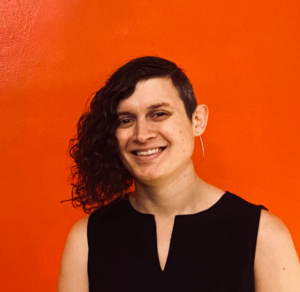 Sam Chenkin
Sam Chenkin
Founder
Reclaim the Sector
This is for those of you who are newly awakened to the personal moral imperative of dismantling white supremacy in the nonprofit sector. I’d like to welcome you to the struggle.
The fight will be a long one. This past month of intensity is but one important moment in a history of anti-racist organizing. This history stretches back hundreds of years and will doubtless need to continue for years to come. As you’ve doubtless noticed, white supremacy is alive and well in the nonprofit sector; we’ll need your help to dismantle it.
To do that, I’d like to welcome you to your new role: organizer. It’s good to have you.
Your old role (nonprofit employee) isn’t going to cut it anymore. Being an employee requires accepting the system as it is. Employees shape themselves to fit the system. And our nonprofit system is broken — rooted in and perpetuating white supremacy.
Organizers build power with others to change the system itself. We refuse to accept brokenness. We fight for a world that can support everyone. We dream.
Being an organizer comes with risks; confronting power is dangerous. We may lose a funder, a client, a staff member. We may make a mistake and hurt our friends. We might lose our jobs.
But what is the point if we aren’t moving the needle towards justice? Unaddressed, white supremacy will make it impossible to support our communities.
Besides, now that you are an organizer, you have access to many beautiful new tools and techniques! I invite you to spend the next six months settling in and starting to get familiar.
Here is your initial to-do list:
- Start an affinity-based accountability group. Anti-racist organizing requires the knowledge and humility to engage meaningfully about race. To get started, I’d recommend this wonderfully nuanced resource: “Building an Effective White Caucus” from Roots of Justice. To build these skills without causing harm, I recommend exploring white supremacy with others like you. Meet at least every other week. Your goals are:
- Read and learn about white culture so you can recognize white supremacy.
- Practice interrupting white supremacy and microaggressions.
- Discuss structural organizational changes you can push for.
- Serve as a resource for people of color in your organization and amplify their voices.
- Address organizational basics. Learning enough to lead will take time. Start with basic structural changes that will amplify marginalized voices. If you have the necessary relationships, listen to marginalized folks in your organization. Otherwise, here are some foundational first steps that apply to any organization. These basic steps won’t be sufficient to uproot white supremacy. But they will get you and your organization ready:
- Push for a DEI Committee that compensates members and has clearly defined power to make changes.
- Push for changes to your hiring practices that will help your organization hire folks with lived experience.
- Make space for sharing, building power, and healing. These can be affinity groups for marginalized people in your organization and/or multi-racial spaces with careful facilitation. Ask folks what they need.
- Fight against practices that center white supremacy and enforce white professional culture.
- Demand that new leadership be people with personal experiences of marginalization.
- Dream. Most importantly: dream. You are an organizer now — you aren’t constrained by the system. You don’t have to quietly accept what your executive director demands. We can find alternatives to harmful funding practices, ineffective service delivery, and “apolitical” nonprofit values. Anything is possible with the help of others and a little time.
What does a world look like that supports everyone (yourself included)? How can the nonprofit sector move our world towards that goal? As organizers, we have the power to reshape the nonprofit sector.
Project
ImpactPHLTrending News










